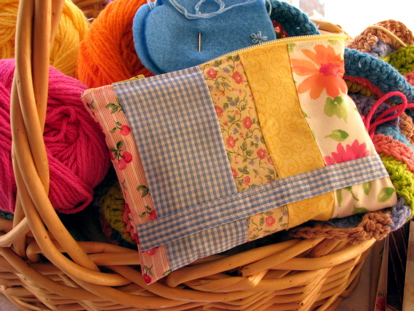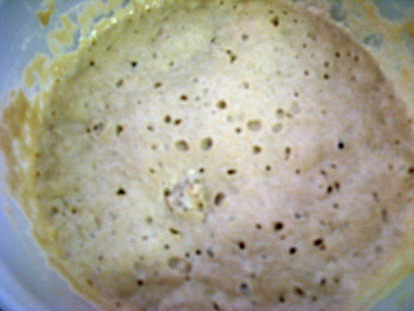(Part 3 of The Not Supermom Series.)
Kristie writes:
One quick question…
Language arts…looking at your day, do your kids write, do dictation, read etc. or is this in tides (besides the reading, it is obvious that is the lifestyle in homes where literature is loved..)
Thanks so much
Betty asks:
Now for the nitty gritty. When do you find it best to shower? What type of language arts do you do (I saw that was asked already)? Do the kids do chores? I think half my battle is just getting the children to work on their little jobs and then 2 yr. old starts getting fussy, and soon it’s lunch time and the only thing anybody has done is copywork.
These are great questions, and they cover a lot of ground so I’ll probably answer over a couple of posts. Let’s start with Betty’s nitty-gritty: showers, chores, practical scheduling concerns. (I’ll tackle language arts tomorrow.)
Like many homeschooling moms, I love looking at people’s daily schedules, like the ones in the Large Family Logistics files. It can be extremely helpful to see how other mothers order their days. With that in mind, I thought I’d sketch out part of our typical day’s routine. Mind you, this is our spring new-baby routine. When the community pool opens in June, this schedule will go out the window and we’ll discover a whole new flow to our days. But thanks to what my friend Leonie calls “pegs,” the most important elements of our day will remain in place even if the time of day they happen shifts around from season to season.
It was several years ago that Leonie introduced me and the other moms on the Catholic Charlotte Mason list to her habit of “pegging” one activity to another. The basic concept is that there are certain things that happen in our homes every day: meals, getting dressed, bedtime, and so forth. These things may not happen at the exact same time day in and day out—dinner might be at 6:00 one night and 6:30 the next—but they do happen pretty much every day, occuring within a fairly consistent general time frame. These activities, Leonie explained, can serve as “pegs” on which to hang other activities. An example from my home is the way we have pegged music to breakfast: I pick one piece of music per week, a symphony perhaps, to play every morning while the girls are eating. Breakfast is the peg, the fixed activity which I know will happen every day. Music is the secondary activity I have hung upon that peg.
Most households already make use of pegs, whether the family realizes it or not. If you read your kids a bedtime story every night, there’s a peg: the read-aloud is pegged to going-to-bed. When FlyLady tells you to shine your sink every night or wipe down your bathroom counter after you brush your teeth, she’s preaching pegging, though she doesn’t call it by that name.
Leonie’s brilliantly simple notion was the best piece of household advice anyone ever gave me. Thanks to pegs, no matter how topsy-turvy our lives have become (and believe me, we’ve spent a lot of time upside down), I’ve been able to make sure that the things I hold dear have not dropped by the wayside in times of stress. Children must always be fed, so why not peg music to one meal and poetry to another? If the baby naps every afternoon, it may be convenient to peg big sister’s science experiments or arts-and-crafts time to baby’s naptime. If you go grocery shopping on the same day every week, a trip to the library might be pegged to the outing. If dad does the bedtime read-aloud, mom might want to peg herself a shower at that interval. Pegs help ensure that the important but non-essential activities don’t get lost in the shuffle of essentials.
For me, a really helpful aspect of pegging is that it provides rhythm and pleasant structure without binding us to a strict minute-by-minute schedule. I cannot guarantee that the baby’s nap will be the exact same length of time every morning. But if I know that she will nap every morning and if I’ve pegged, say, a read-aloud and math to her nap, I’ll be sure to grab that read-aloud as soon as the baby goes to sleep rather than fritter away the nap checking mail or chatting with a neighbor. The kids know that they can count on baby’s naptime for some one-on-one with mom. Children like their days to have rhythm; they like the quiet security of a routine. Pegs allow us to provide the routine without getting stressed about the ticking away of minutes on a clock.
So here are some of the pegs in use around here.
• Music—pegged to breakfast (as already mentioned).
• Kids’ morning chores (brush hair, brush teeth, make bed, wipe bathroom sinks)—pegged to getting dressed.
• Kids practice piano—pegged to my shower/dress/make bed/clean bathroom time.
• “FlyLady Time”—not a peg exactly (nothing is pegged to it), but a regular part of our routine. This is when we do our daily housework following a plan based on the FlyLady and Large Family Logistics schedules.
• Morning lesson time. The schedule is fluid and subject to spontaneous abandonment but its chief elements are: morning prayer, Latin, math, history read-aloud, and poetry. Other activities include science experiments, drawing, nature journaling, picture study, German, sign language, geography (with Mr. Putty), or whatever the children are wrapped up in at the moment.
• Morning walk—pegged to lunch. For half an hour or so before we eat lunch, we try to get outside every day. We haven’t gone on a real nature walk since a month before the bairn was born (but I am hoping to return to that before long). For now we are just puttering around the yard or walking to the neighborhood playground…during Grandma’s visit, Wonderboy fell in love with the swings.
• We used to have a read-aloud pegged to lunch, but ever since the baby was born it keeps slipping off the peg.
• Wonderboy’s nap: Several things are pegged to this. First, as I’ve written about before, the girls all have an hour of quiet time (to read or play alone) while I eat lunch, read mail, pay bills, etc. Twice a week Jane does a written narration during this block of time.
• Then (still during the nap) I have one-on-one time with each girl. OK, the nap isn’t long enough for EVERYONE to get one-on-one every day, but I can fit in half an hour each with two of the girls, so we just sort of rotate through everyone. During Beanie’s time, I read picture books to her. During Rose’s one-on-one, she does her Greek and/or I read to her—”A read-aloud all of my own, Mommy.” (Jane often gets computer time while I’m doing those things.) Often, Jane’s one-on-one is spent helping me with dinner prep: an activity she adores and I pretend to. (Jane is reading this and laughing. She knows I don’t like to cook. She knows I know she loves it. She knows I try to put on a game face and act like I’m having fun, and she knows that nearly always turns into real fun. We call this the Uncle Jay Rule of Life in honor of a piece of advice Scott’s brother gave him long ago before some unappealing social event—which is to say, any social event, as far as my hermit-like husband is concerned: Act happy, and you will usually find yourself being happy. As usual, Jay is quite right.)
• After Wonderboy’s nap, he likes to cuddle on the couch and have his yogurt smoothie (part of our endless quest to fatten him up). To this pleasant time of day I have pegged read-aloud time with the girls—either our current Shakespeare play or current novel.
• Afternoon play time—usually pegged to my writing time, but I have one more week of babymoon left.
• Kids’ dinnertime—on this peg we often hang some music: Scott plays guitar and I sing while the kids eat. We used to do this almost every night; now it is more sporadic.
• Dinnertime for Scott and me (we usually eat after the kids)—kids do evening chores. (Put on pajamas, clean room, brush teeth.) They nearly always peg a Jim Weiss story tape to their chores (or if their room is really messy, they put on the Annie soundtrack and belt out “Hard Knock Life”).
• Scott reads to girls—pegged to bedtime. I read to Wonderboy—ditto. And reading is pegged to our own bedtime, too: but I usually fall asleep before I’ve gotten far. (Alas.)
I’m sure we have more pegs, but these are the primary and most consistent ones. The simple principle of attaching a “want-to-do” to a “must-do” has, more than anything else, helped us to keep up with the pursuits we care about and to enjoy our daily chores, even in the wake of a toddler’s surgery, a parent’s book deadline, or a delicious new baby’s arrival.






